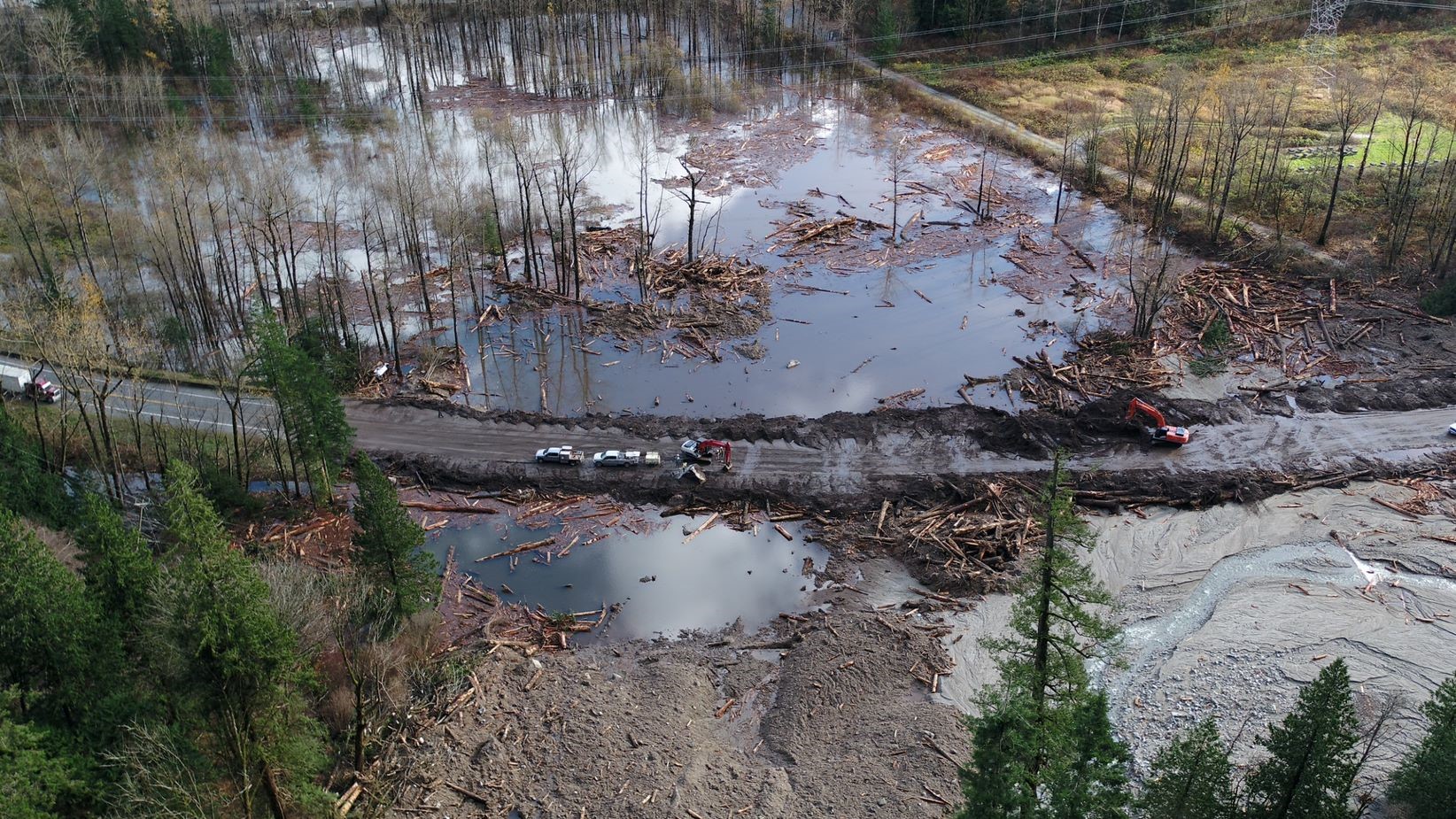We’re excited to announce that the British Columbia Ministry of Transportation and Infrastructure (BC MoTI), in partnership with McElhanney, has been recognized as the winner of the 2023 Transportation Association of Canada (TAC) Technical Achievement Award in the Climate Action Achievement category for our work on the Ministry’s Culvert Vulnerability Asset Management System.
McElhanney is very proud to have supported BC MOTI on this critical infrastructure project by providing engagement, hydrotechnical analysis, geospatial analysis consequence assessment and dashboard production.
This award recognizes initiatives that demonstrate excellence in mitigating emissions from transportation that cause climate change, and/or in improving the resiliency of transportation systems in response to climate change. Finalists and the winning award are selected by evaluation criteria regarding innovation, transferability, and project outcome. Being recognized for our work in sustainability and climate change on a national level is a testament to McElhanney’s continued growth and excellence in this field
The Issue: Existing Culverts and Bridges Need to Withstand Severe Flooding Events
The rain and flooding that struck southwestern BC in November 2021 broke dozens of all-time rainfall records. The floods and landslides devasted roads, bridges, culverts and railways, cutting off routes to Metro Vancouver and the rest of Canada and leaving many communities stranded.
Climate change has made it much more likely that this type of disaster will happen again. The lesson taken from this event was clear; existing infrastructure that’s required to direct water from extreme events, like culverts and bridges, are aging. Many are not able to convey flows from these storms and will not be able to handle the predicted increase in extreme weather events that they were not initially designed to withstand.
The Solution: The Resilient Highway Infrastructure Adaptation Program to Help Protect Against Future Climate Change Disasters
To support BC MOTI’s subsequent Resilient Highway Infrastructure Adaptation Program, aimed at understanding the vulnerability of existing infrastructure to impacts such as climate change, the Ministry hired McElhanney to develop a new Culvert Vulnerability Asset Management System that helped identify, analyze, and map the most at-risk culverts across the province.
The McElhanney team commenced a two-phase work plan in 2022, which included systems for collecting, developing, and organizing information using multiple criteria decision analysis in ranking and prioritizing high-risk culverts.
Phase 1 focused on information collection, and data analysis that led to the development of a web-based application that used information on infrastructure, physiography, climate change, hydrometrics, transportation patterns, and environmental values to determine each culvert’s vulnerability rating based on projected flows, hydraulic capacity, and consequence factors. Understanding vulnerability has been key to asset management for some time, however McElhanney pushed this concept further to define what vulnerability means in terms of climate change and on a provincial level in developing an application that used information on infrastructure, physiography, climate change, hydrometrics, transportation patterns, and environmental values to determine each culvert’s vulnerability rating based on projected flows, hydraulic capacity, and consequence factors.
Phase 2 saw the refinement of the web application based on the recommendations of first-hand BC MoTI field staff experiences. This included improved functionality to allow for tracking of updated infrastructure, addition of spatial data and ability to categorize structures requiring replacement.
Learn more about our Vertisee applications and how they can help your project here.
Although this tool cannot solve climate change or prevent it, it can ensure that the right information is in the hands of the right people to identify culvert vulnerability and risk to help prevent future natural disasters.
Learn more about this award by visiting visit TAC’s website.
To learn more how British Columbia is adapting its transportation infrastructure to climate change, visit their page on Adapting to Climate Change.
To learn more about McElhanney’s related services, visit:
